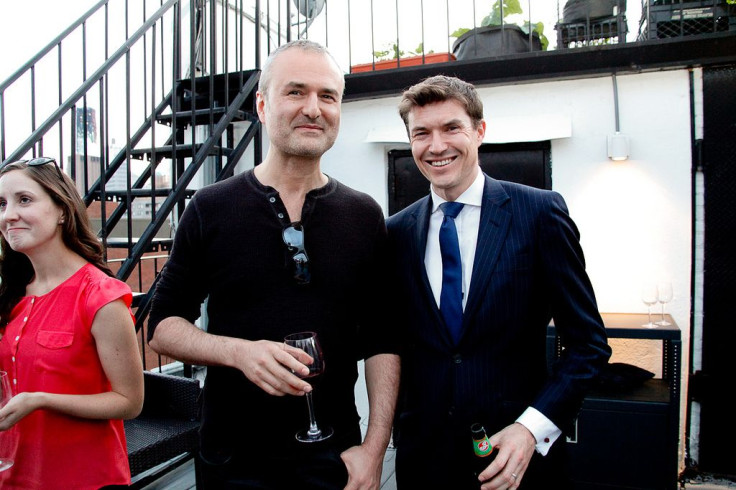Gawker Media Is On The Hunt For Outside Investor Cash

UPDATE: January 20, 6:44 p.m. EDT -- Nick Denton told the New York Times on Wednesday that the lucky investor is Columbus Nova Technology Partners. Managing director Jason Epstein will join Gawker’s board.
UPDATE: January 19. 6:44 p.m. EDT -- Gawker Media responded to the original story with a statement, included below.
Original story:
Gawker Media is seeking funding from outside investors and calling an "extraordinary general meeting" of shareholders on Thursday to approve a new class of Series B preferred shares, International Business Times has learned. The company confirmed the move on Tuesday as a way to finance its ongoing legal battle with ex-WWE legend Hulk Hogan.
The resolution put to the shareholders, obtained by IBT, will allow for the “authorization, creation and issuance of the Series B Preferred Shares.” Private companies looking to raise money issue different types of stock to different classes of shareholders. In the event of the sale of the company or an IPO, the different classes of shareholders may be paid at different rates or in different order.
It’s the first time Gawker has courted outside investors to fund its punchy brand of news and views, sources say. Under founder and CEO Nick Denton’s vision, the site has long declared editorial and financial independence as its guiding principle. Denton, who originally funded the venture himself, made a killing selling his social-networking site First Tuesday in the early 2000s and used the windfall to bankroll Gawker Media. Since then, the site has made its money through traditional ads and sponsored content cooked up by its ad studio.
A representative for Gawker sent IBT the following statement: “With the Hulk Hogan trial beginning in early March, Gawker Media is fortifying its finances to ensure full resources are in place for the continued cost of litigation," it read. "Gawker Media is the most heavily trafficked digital media company that has not raised institutional funding and continues to grow at double-digit rates, with significant untapped opportunity across its seven core brands."
"Until now, Gawker Media has been funding the Hulk Hogan legal expenses from general revenues and given the expenses of continuing to defend our First Amendment rights, the management of Gawker Media has concluded that additional financing should be locked in before the trial begins," the statement concluded.
That trial is the last stand of Terry Gene Bollea, better known as Hulk Hogan, who is suing Gawker to the tune of $100 million for defamation, loss of privacy and emotional pain over a sex tape published by the site in 2012. Denton has made some nervous sounds about Gawker's chances in the lawsuit, even after the trial date was delayed last summer. And a verdict in favor of Hogan would certainly cost the company millions.
The decision to seek outside funding is the second big change for Gawker in recent months after the company announced last fall that it would be converting from a gossip blog to a politics site. But the financial play may be the more significant change.
As for the "Series B" jargon: Venture capitalists like to get preferred shares like the ones Gawker is looking to issue so they can get paid before the employees who own common stock, i.e. basic shares without special protections. At the same time, preferred shares often come with limits on the voting power on the company’s board of directors and therefore restrictions on the influence those shareholders hold over the business.
In the background, Gawker employees are still hammering out a contract with management following their successful unionization last year with the Writers Guild of America. Leaked documents published by IBT, along with interviews with staff, revealed that newsroom independence and a "firewall" between the editorial and business sides is a top priority for Gawker writers.
The high-profile implosion at the company last summer, over a post that was taken down by Gawker's executive committee over the protests by the editorial staff, has kept staffers vigilant about the separation of church and state and the value of editorial independence. Introducing outside shareholders will almost certainly be a new pill to swallow for the bargaining unit.
© Copyright IBTimes 2024. All rights reserved.






















